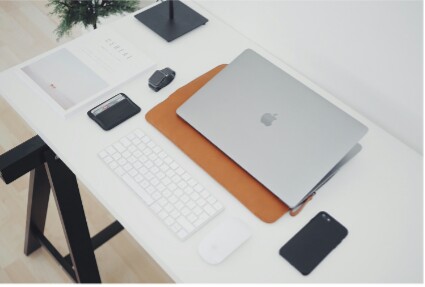Looking for online digital device tools? Giyovi e-tools offers a wide range of tools for all your digital device needs. Visit giyoviblog.blogspot.com and find out how we can help you with your digital projects today!
ads3
Smartphones vs Laptops: Which is More Convenient for Daily Use
In today's fast-paced world, technology has become an integral part of our daily lives. Smartphones and laptops have revolutionized the way we communicate, work, and entertain ourselves. With the rise of both devices, it's difficult to determine which one is more convenient for daily use.
When it comes to size and portability, both smartphones and laptops have their advantages and disadvantages. Smartphones are incredibly compact and can easily fit in your pocket or purse, making them ideal for on-the-go use. You can easily take them with you wherever you go, and they don't require a separate bag or case.
When it comes to features and functionality, both smartphones and laptops have their pros and cons. Smartphones are designed for convenience and portability, packing many features into a small package. They allow us to make calls, send messages, take photos, and access social media on the go. Smartphones also have a wide range of apps available that can be used for productivity, entertainment, and more. Many apps are designed specifically for mobile use, making it easy to complete tasks while on the move.
When it comes to battery life and power, there is a clear winner between smartphones and laptops. Smartphones are designed to be used on the go, and therefore have smaller batteries that can last anywhere from a few hours to a day depending on usage. On the other hand, laptops are designed to be portable but are still bulkier than smartphones and have larger batteries that can last anywhere from a few hours to a full day or more depending on usage.
When it comes to screen size and resolution, personal preference plays a big role, but there are some factors to consider. Smartphones are known for their portability and ease of use, but they have a smaller screen size than most laptops. This can make it difficult to view and edit documents, spreadsheets, or even watch a video for a long period of time.
When it comes to ease of use and user interface, smartphones and laptops have different advantages and disadvantages. Smartphones offer a more streamlined interface with fewer options and features, making it easier for users to navigate and find what they need quickly. They are also more compact and portable, making them convenient to use on the go.
When it comes to cost and affordability, smartphones are generally more budget-friendly than laptops. Smartphones are available at various price points, and you can easily find a decent smartphone that fits your budget. In contrast, laptops tend to be more expensive than smartphones, especially if you are looking for a device with higher specifications and performance.
Security and privacy are two of the most important factors to consider when choosing between a smartphone and a laptop. Both devices have their own vulnerabilities and risks, and it's important to understand them before making a decision.
When it comes to productivity and multitasking, laptops have traditionally been the preferred choice. They offer a larger screen size, a full-sized keyboard, and the ability to run multiple tabs and applications at once. This makes it easier to work on multiple projects simultaneously and switch between them seamlessly.
After discussing the various pros and cons of smartphones and laptops, it's clear that both devices have their unique advantages and disadvantages.
 It appears that you are providing a short description of various topics. Here's what I understand from your description:
1. "Real Update Secret News": This could refer to a platform or website that claims to provide authentic and exclusive news updates.
2. "Adsense Approval": This could relate to a service or information about getting approval for Google AdSense, a program that allows website owners to display ads and earn revenue.
3. "Free Website Traffic": This may be about techniques or services that claim to generate free traffic to a website without the need for paid advertising.
4. "Android Creator Asoftware": This seems to refer to software or tools for creating Android applications.
It's important to note that I cannot endorse or verify the legitimacy of any specific claims or offerings mentioned in the description. Always exercise caution and do thorough research before engaging with any service or product online.
It appears that you are providing a short description of various topics. Here's what I understand from your description:
1. "Real Update Secret News": This could refer to a platform or website that claims to provide authentic and exclusive news updates.
2. "Adsense Approval": This could relate to a service or information about getting approval for Google AdSense, a program that allows website owners to display ads and earn revenue.
3. "Free Website Traffic": This may be about techniques or services that claim to generate free traffic to a website without the need for paid advertising.
4. "Android Creator Asoftware": This seems to refer to software or tools for creating Android applications.
It's important to note that I cannot endorse or verify the legitimacy of any specific claims or offerings mentioned in the description. Always exercise caution and do thorough research before engaging with any service or product online.
Subscribe to:
Post Comments (Atom)
-
18 Best Practices for Building Responsive Web Applications That Users Will Love In today's digital age, having a responsive web...
-
10 Must-Know Tips for Buying the Perfect Phone With the rapid advancement of technology, buying a new phone can be an overwhel...
-
Unleash the power of free internet on your Android with Stark VPN Accessing the internet has become an essential part of our daily lives. Wh...






No comments:
Post a Comment